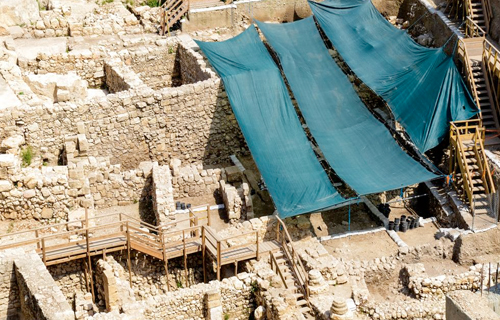Physical Address
Indirizzo: Via Mario Greco 60, Buttigliera Alta, 10090, Torino, Italy
Physical Address
Indirizzo: Via Mario Greco 60, Buttigliera Alta, 10090, Torino, Italy


Hundreds of administrative tablets, dating back more than 4000 years, have recently been discovered on the archaeological site of Girsu, in southern Iraq. This uncovered, the fruit of a collaboration between the archaeologists of the British Museum and the Iraqi authorities, reveals the extent of an extremely sophisticated ancient bureaucracy, considered as the precursor of modern administrative systems.
These clay tablets, dating from the Empire of Akkad (2300-2150 BC), represent a precious source of information on the internal cogs of one of the very first known imperial experiences of history.
“These are the calculation sheets of the Empire, the very first material evidence of the very first empire in the world,” said Sébastien Rey, a curator of the ancient Mesopotamia at the British Museum and Director of the GIRSU project, at the Guardian, stressing the importance of such a discovery.
Girsu is one of the oldest cities in the world. Covering hundreds of hectares to its peak, it is one of the independent Sumerian cities conquered around 2300 BC. AD by King Mesopotamian Sargon. The latter was from the city of Akkad, whose location is still unknown, but which was probably near the current Baghdad. Historians consider him the first emperor in history.
Until these last excavations, information on this empire was limited to fragmentary royal inscriptions or much later copies of Akkadian inscriptions “which are not entirely reliable”, confides Sébastien Rey, “for the first time, we have concrete evidence, thanks to in situ artifacts”, he adds about these new tablets.
Bureaucratic obsession, for 4000 years
The curator insists on the precision of these documents: “They note absolutely everything. If a sheep dies on the borders of the Empire, it will be recorded. They are obsessed with bureaucracy ”. Thus, among the elements recorded in cuneiform writing, there are both state affairs, as well as the trades exercised by men and women, or deliveries and expenses concerning a multitude of products, from fish to domestic animals, barley to barley, textiles with precious stones.
Archaeologists have exhumed these documents in a vast state archive, which remained miraculously preserved in its original context. The site, initially searched in the 19th century and at the beginning of the 20th century, had indeed been the target of Porsers after the two Gulf wars.
The discoveries were sent to the Iraq Museum in Baghdad for a more in -depth study, for a possible loan to the British Museum.
Ul